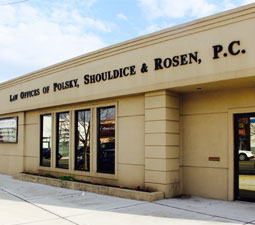Our labor laws have come a long way to ensure a safer working environment. However, these laws can’t prevent injuries, and incidents happen daily. Workplace-related injuries happen every year due to falls from huge heights, machine entanglement, sicknesses, slip and fall injuries, automobile accidents, and more. Following a workplace-related injury, an employee might be entitled to workers’ compensation. However, many workers wonder just what precisely Workers' Compensation can cover. This guide will explore expenses a settlement can cover.
Does Workers’ Compensation Only Cover Medical Expenses?
Besides medical bills, workers’ compensation can cover other expenses like:
- Lost wages or even job rehabilitation when applicable
- Disability benefits—for example, if an accident leaves a worker permanently disabled or for a long period of time
- Ongoing medical care, such as physical therapy or paying for prescriptions
- In the case of wrongful death, workers’ compensation can cover funeral expenses or death benefits for the victim’s family.
Can Workers’ Compensation Cover Factors Like Pain and Suffering?
When it comes to injury lawsuits, you may have heard terms like “pain and suffering.” Refer to as non-economic damages, factors like pain and suffering are common in personal injury lawsuits and will compensate victims for factors not easily calculable. Besides pain and suffering, other examples might include emotional distress, difficulty maintaining relationships, and overall reduced quality of life.
In the case of workers’ compensation, however, a settlement doesn’t cover elements like pain and suffering. With that being said, it’s possible to file a claim against a person’s employer or a separate personal injury lawsuit.
Are There Any Workers That Don’t Qualify?
Who’s covered under workers’ compensation largely depends upon an employee’s role, time commitment, and the size of the business they’re employed at. While requirements can change across states, most workers must work full-time to qualify. However, temps, interns, and contractors may not qualify even if they work full-time. Additionally, some states don’t require workers’ compensation for the following types of workers:
- Real estate agents
- Farmhands
- Casual workers
- Business workers or partners
- Insurance agents
What Are Some Reasons Why a Claim Might Get Denied?
A workers’ compensation claim can be denied for several reasons:
- The incident happened outside of work: If the accident happened outside of work, then you won’t be entitled to workers’ compensation. However, the accident doesn’t need to occur on your job’s premise for you to be entitled. For example, if your job involves driving, you can still be entitled if you get into an accident, even if it wasn’t on the job’s site.
- The worker was under the influence of drugs or alcohol: If the worker was impaired in any way, then this can be grounds to deny their claim. Unfortunately, sometimes businesses or their insurance companies may make unsubstantiated claims, such as a worker being under the influence even when they weren’t.
- A worker violated protocols: If a worker violated state, federal, or employer-specific protocols, safety guidelines, etc., then their claim might get denied.
Following a workplace-related injury, you might be entitled to compensation with help from an on the job injury lawyer in Long Island. Explore how our Polsky, Shouldice & Rosen, P.C. team can help today!


